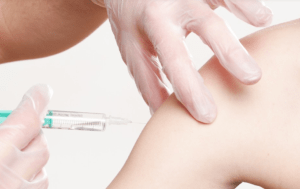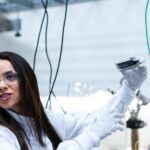Vaccination is one of the greatest achievements in healthcare. However, developing a vaccine remains costly, time-consuming, and risky.
Advances in immunology, disease modelling, in silico modelling, including the analysis of big data and the application of machine learning (ML) artificial intelligence (AI), provide opportunities to innovate, de-risk and accelerate the vaccine-development process. Many of these advances have occurred in the academic sector.
These advances can be harnessed to tackle scientific bottlenecks in vaccine development and to nurture and expand a vaccines innovation ecosystem by bringing together academics, small and medium-sized enterprises (SMEs) and industry to collaborate in four areas:
(i) in silico platform for knowledge management and mathematical modelling of the immune system;
(ii) novel controlled human infection models (CHIMs);
(iii) next-generation human in vitro systems and assays; and
(iv) mathematical modelling platforms for vaccine substance and product attributes in biomanufacturing.
Objectives
The overall objective is to accelerate and de-risk the development of new vaccines by incorporating scientific and technological advances from the academic and biotech sectors into the industry, and to develop more predictive biological and mathematical models of vaccine performance. The topic is composed of four subtopics with the following specific objectives:
1: to develop an open-data/open-source in silico platform focussed on immunobiological processes, and not on a given disease or vaccine indication.
2: to develop improved or novel CHIMs for influenza, RSV and C. difficile, to facilitate the generation of early efficacy data for vaccine candidates.
3: to develop
- prototype next-generation in vitro systems for antigen identification/validation and drug substance and drug product characterisation/validation; and
- associated functional immune assays for clinically-relevant (surrogate) endpoints.
4: To develop an open data/open source in silico biomanufacturing platform incorporating models for
- predicting vaccine-product stability; and
- the parameters to maintain process robustness for unit-operation scale up or scale down, and for process transfer.
Expected Impact
The overall expected impacts are:
- a greater success rate in bringing vaccine candidates through clinical development;
- increased efficiencies in the transitioning of biomanufacturing processes during vaccine development;
- and a more vibrant ecosystem of vaccine innovation in Europe.
Deadline
05 November 2020 17:00:00 Brussels time







Leave a Reply